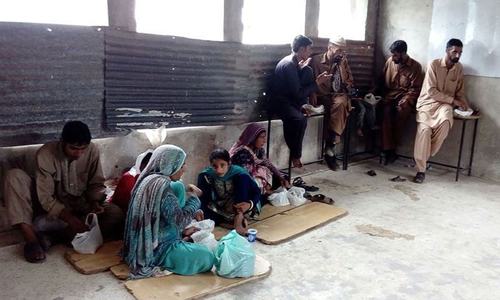WASHINGTON/ISLAMABAD: Many countries, including global powers, on Wednesday called upon Pakistan and India to exercise restraint and pull back from the brink of a full-fledged war as the White House National Security Council (NSC) warned that the risks of further military action by India and Pakistan were “unacceptably high”.
Talking to journalists in Washington, an NSC official said the US was deeply concerned about attacks and counter-attacks by both countries. “The potential risks associated with further military action by either side are unacceptably high for both countries, their neighbours, and the international community,” the official said.
Take a look: De-escalate now
“The United States is deeply concerned about rising tensions between India and Pakistan and calls on both sides to take immediate steps to de-escalate the situation.”
US Secretary of State Michael Pompeo had earlier called upon the two neighbours to “prioritise direct communication” and avoid further escalation “at any cost”. The appeal for restraint preceded Pakistan’s military response to the Indian air strike of Tuesday in which PAF brought down two Indian jets on Wednesday.
Risk of escalation ‘unacceptably high’, says White House
Secretary Pompeo said he spoke to Foreign Minister Shah Mehmood Qureshi and his Indian counterpart Sushma Swaraj hours after the Indian air strike and conveyed Washington’s appeal for restraint. “I expressed to both ministers that we encourage India and Pakistan to exercise restraint, and avoid escalation at any cost,” he said.
Mr Pompeo said he “also encouraged both ministers to prioritise direct communication and avoid further military activity”.
While Pakistani civilian and military leaders termed the violation of Pakistan’s airspace an act of aggression, Secretary Pompeo described the strikes as “counterterrorism actions”. Pakistani officials, however, said Mr Qureshi told Secretary Pompeo the Indian aggression was worthy of condemnation and hoped the US would play its role in easing the crisis.
China calls for dialogue
In response to the escalating tensions between India and Pakistan, China urged the South Asian neighbours to “exercise restraint” and seek a dialogue over outstanding disputes, add agencies.
“...India and Pakistan, as important countries of the South Asian subcontinent, can maintain good neighbourly and friendly relations,” said Lu Kang, the spokesman for China’s foreign ministry, at a regular press briefing.
“We hope that both India and Pakistan can exercise restraint, take initiatives that are conducive to promoting dialogue, meet halfway and make active efforts for lasting peace and stability in South Asia,” Lu said.
Turkey, Iran offer to mediate
Turkish Foreign Minister Mevlut Cavusoglu underlined the importance of resolving the Kashmir dispute so that there was no recurrence of the crisis. “The Kashmir problem is a conflict whose solution has been frozen for years but which constantly leads to tensions between the two countries,” he said.
He said his country was ready to play its role in helping resolve the dispute and urged the two countries to avoid any steps that would further escalate the tensions.
Mr Cavusoglu said he had discussed the issue in a phone conversation with his Pakistani counterpart Mr Qureshi.
Iranian Foreign Minister Mohammad Javad Zarif also spoke to Mr Qureshi, and offered mediation between India and Pakistan.
He urged both countries to practise restraint, adding that he would soon talk to his Indian counterpart on the matter.
Britain’s junior Foreign Office minister Mark Field said he would speak to Indian and Pakistani envoys to urge their countries to exercise restraint. “I shall be speaking to both the Indian and Pakistani High Commissioners... and will continue to press for the importance of restraint,” he said in parliament.
A spokeswoman for Germany’s foreign ministry said Berlin was watching developments in South Asia “with great concern”.
Maria Adebahr told reporters that both sides had a responsibility to prevent an escalation. She said Germany was also calling on Pakistan to act against extremist groups such as Jaish-e-Mohammad that claimed responsibility for a suicide attack in India-held Kashmir.
EU’s diplomatic chief Federica Mogherini called on the neighbours to show “utmost restraint” in their worsening confrontation. “This has the potential to lead to serious and dangerous consequences for the two countries and the wider region,” she said.
Published in Dawn, February 28th, 2019















































Dear visitor, the comments section is undergoing an overhaul and will return soon.